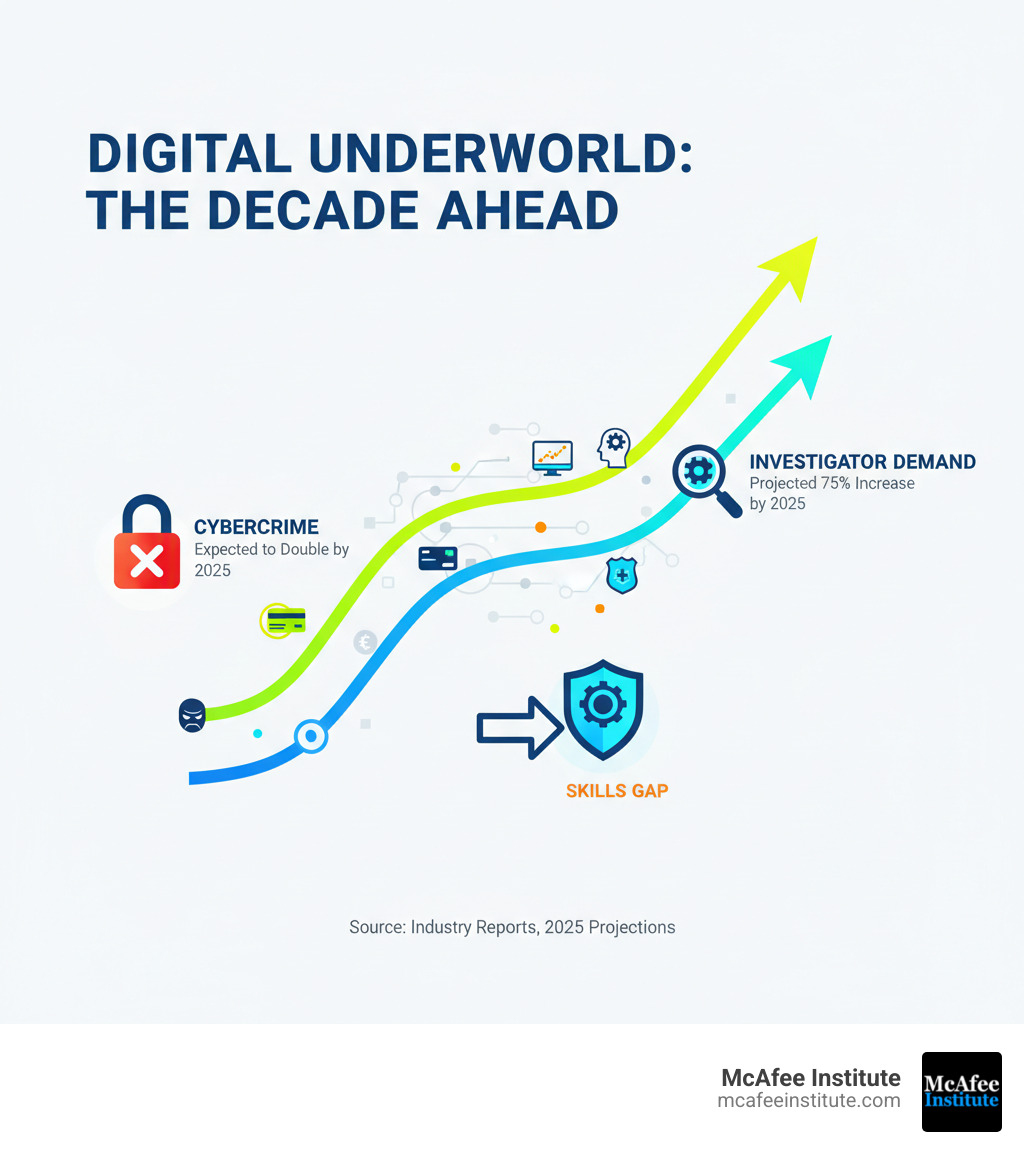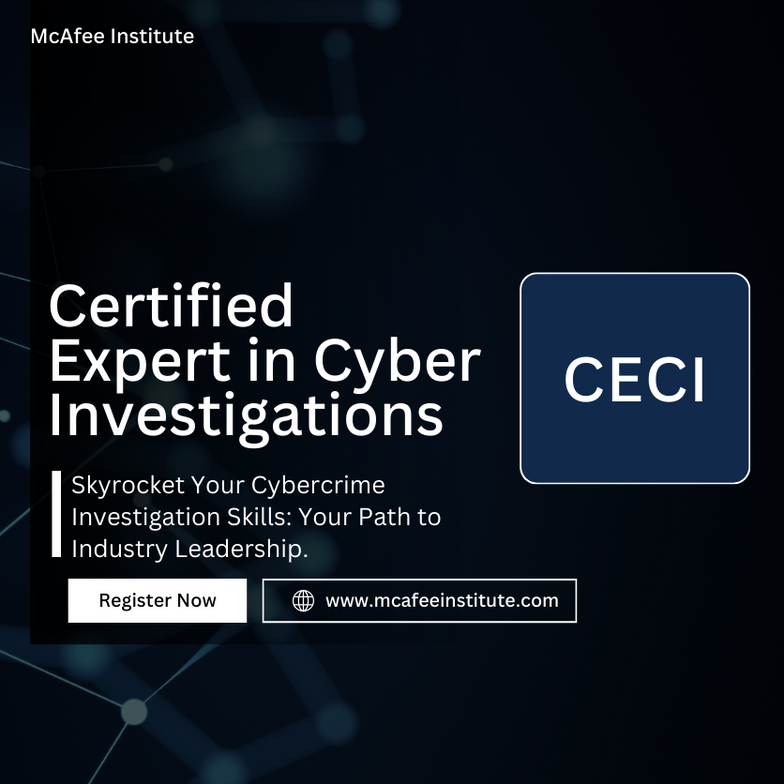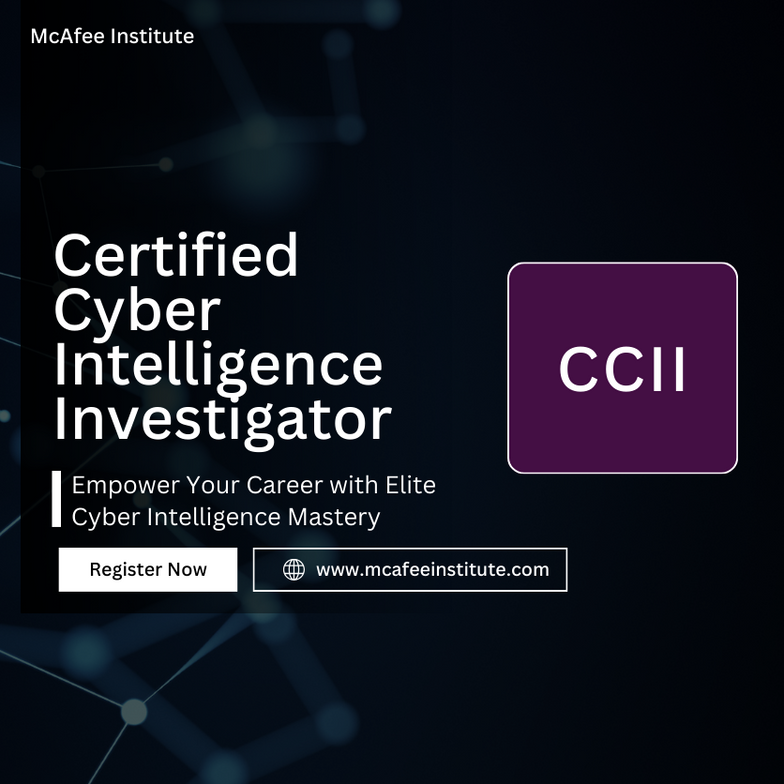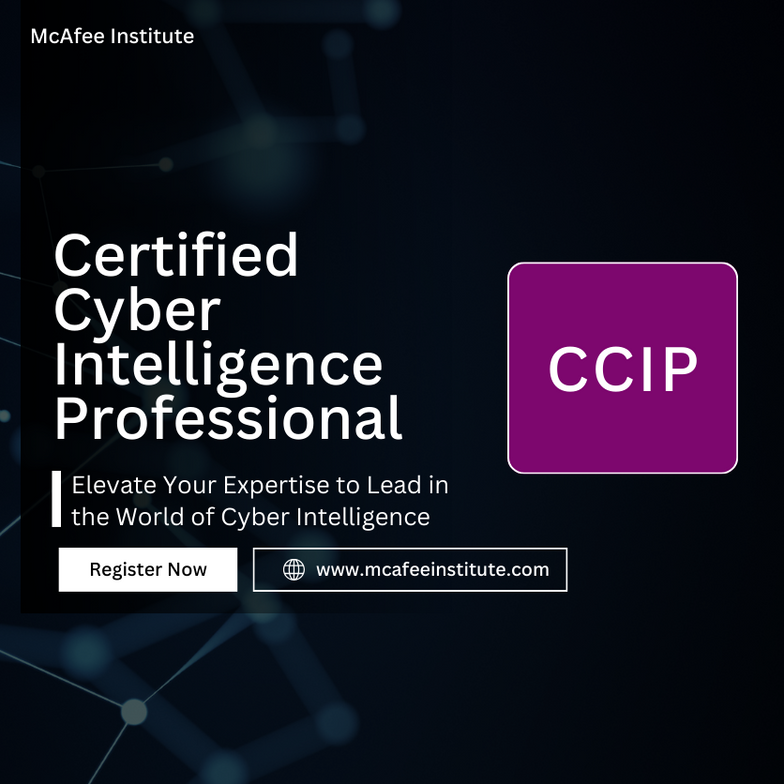Why Specialized Training is Your Pathway to the Digital Underworld
A cyber crime investigation course equips law enforcement and investigative professionals with the skills to track criminals in the digital world. With cybercrime evolving rapidly and millions lost to digital fraud each year, specialized training is no longer optional—it's essential for career advancement and operational success.
Here's what to look for in a quality program:
- Digital Forensics Training – Learn to identify, collect, and preserve digital evidence while maintaining chain of custody.
- OSINT Techniques – Master open-source intelligence gathering from social media, the dark web, and online platforms.
- Cryptocurrency Tracing – Follow the money through blockchain analysis and wallet clustering.
- Hands-On Labs – Practice real-world scenarios in safe, simulated environments.
- Government Recognition – Choose programs accredited by federal agencies and trusted by employers.
- Flexible Learning – Online, self-paced options with lifetime access and instructor support.
The best programs combine technical skills with investigative methodology, teaching you to adapt traditional techniques to the cyber domain while understanding legal frameworks and evidence admissibility. Whether you're investigating financial fraud, child exploitation, or organized crime, the right training prepares you for the complex challenges ahead.
According to industry research, the demand for professionals with specialized cybercrime analysis skills will grow dramatically. Today's crimes—from harassment to identity theft—almost always contain a cyber component. First responders and investigators who understand digital evidence are more valuable to their agencies and better positioned for promotions.
I'm Joshua McAfee, and I've built global training platforms for law enforcement and intelligence professionals. Every cyber crime investigation course we create at McAfee Institute is designed by real-world investigators for frontline professionals who need battle-tested skills, not theory. Criminals operate across borders using encrypted communications and cryptocurrency. If you can't follow them into the digital underworld, you can't solve the case.

What You Will Learn: Core Skills for the Modern Investigator

A comprehensive cyber crime investigation course transforms you from someone who feels lost in the technical weeds into a confident digital detective. It equips you with a powerful toolkit to steer the digital underworld, where terms like blockchain analysis and OSINT become second nature.
Digital forensics forms the foundation of your training. This is the scientific process of identifying, collecting, preserving, and analyzing digital evidence in a way that is admissible in court. You'll learn to handle evidence from computers, mobile devices, and networks, creating forensically sound copies to maintain the crucial chain of custody. A quality course teaches you how criminals use encryption and steganography to hide data and, more importantly, how to defeat these methods. As technology evolves, so do our tools; we explore this in depth at How AI is Transforming the Future of Investigations.
Open-source intelligence (OSINT) techniques open up a world of investigative possibilities. You'll learn to systematically gather intelligence from public sources like social media (SOCMINT) and specialized search engines. Training will cover how to safely steer the dark web, manage covert online personas (sock puppets), and verify information to ensure data integrity. For a deeper dive, check out our guides on 5 Incredible OSINT Techniques to Supercharge Your Investigations in 2025 and Understanding OSINT: A Comprehensive Guide.
Cryptocurrency tracing has become essential as criminals use digital currencies to hide their financial trails. You'll learn blockchain tracing fundamentals to follow transactions on public ledgers. Using techniques like wallet clustering, you can group addresses belonging to a single entity. You'll also study how criminals use mixers and CoinJoins to obscure transactions and learn strategies to de-anonymize them. Attribution combines this analysis with other data, such as KYC data from exchanges, to connect digital wallets to real-world identities. For professionals serious about this field, our Certified Digital Currency Investigator (CDCI) program offers advanced, focused training.
Finally, you must be able to communicate your findings. Brilliant detective work loses its impact without clear reporting. Our guide on How to Write an Investigation Report: A Step-by-Step Guide helps you create reports that prosecutors and juries can understand.
Choosing the Right Cyber Crime Investigation Course
Not all training is created equal. With cybercrime growing more sophisticated, choosing the right cyber crime investigation course can mean the difference between staying relevant and falling behind. This section helps you find a program that fits your career goals, budget, and learning style.

When evaluating a course, consider the fundamentals. Look for programs with government accreditation and a focus on hands-on labs, as you can't learn investigation by reading about it. Compare the total cost, including any hidden fees for exams or materials. At McAfee Institute, we believe in lifetime access with no recurring fees, because your investment should pay dividends for years.
Types of Programs: Board Certifications and Micro-credentials
The training landscape offers several pathways for different career stages.
Micro-credentials provide focused skills in a shorter timeframe. They work well when you need a specific competency quickly or want to explore the field before committing to a comprehensive program.
McAfee Institute Board Certifications represent comprehensive, in-depth training designed by investigators who've worked real cases. These employer-trusted and government-recognized programs signal that you possess expert-level knowledge. Our certifications come with lifetime access, live instructor support, and free updates—because the threat landscape evolves, and your training should evolve with it.
Law enforcement-specific training addresses the unique needs of police officers and federal agents, emphasizing legal frameworks and operational protocols. Academic programs from universities offer extensive training, often leading to degrees for those pursuing research or expert witness work.
Before enrolling, ask key questions: What specific skills will I gain? How much hands-on experience is included? Who designed the curriculum? Is the program recognized by employers? What are the prerequisites and total costs?
Learning Formats and What to Expect from a Cyber Crime Investigation Course
How you learn matters as much as what you learn. Modern courses offer various delivery formats to fit your needs.
Online self-paced learning offers maximum flexibility, which is ideal for professionals juggling caseloads and unpredictable schedules. At McAfee Institute, our self-paced programs include lifetime access and live instructor support, so you're never learning alone.
Live virtual classrooms combine online convenience with real-time interaction, connecting you with instructors and peers worldwide. In-person training delivers an intensive, immersive experience with immediate feedback and valuable networking opportunities.
The best programs incorporate scenario-based learning and capstone exercises that simulate real investigations from start to finish. These exercises reveal knowledge gaps in a safe training environment. Proctored exams ensure the integrity of your credential, verifying you possess the skills you claim.
Lifetime access to materials is a key differentiator. The investigative landscape changes constantly. Programs offering lifetime access and free updates commit to keeping your skills current. Our Certified Expert in Cyber Investigations (CECI) program exemplifies this comprehensive approach.
Your Path to Enrollment: Requirements, Costs, and Applications
Taking the leap into a cyber crime investigation course is a significant career decision. This section breaks down what you need to know before you enroll, from prerequisites to the application process.
These programs serve a diverse range of professionals, including law enforcement officers, federal agents, intelligence analysts, private investigators, and corporate security staff. Whether you're a patrol officer securing digital evidence or a detective building a complex fraud case, there's a program designed for your needs. If you're in law enforcement, you can explore government-sponsored programs through official portals like FLETC's Apply for Training.
Who Should Enroll and What are the Prerequisites?
These programs are ideal for professionals who encounter digital evidence. Police officers, federal agents, and military personnel find these skills directly applicable to their missions. Our certifications are recognized through Army COOL, Navy COOL, Air Force COOL, and DoD COOL programs, making them accessible for service members.
Fraud investigators in both public and private sectors need to follow digital money trails. IT professionals can leverage their technical background by adding an investigative methodology. Even legal professionals benefit from understanding how digital evidence is collected and analyzed.
Most professional-level courses expect basic computer skills and, more importantly, an investigative mindset: curiosity, attention to detail, and a logical approach to problem-solving. Some advanced programs may have specific prerequisites, but many certifications welcome motivated beginners. Our Certified Expert in Cybercrime Investigations (CECI) program is designed for professionals across this spectrum.
Understanding the Costs and Application Process for a Cyber Crime Investigation Course
Training costs vary widely, so understanding the investment upfront is key.
Micro-credentials are often the most affordable entry point, with tuition typically costing a few hundred dollars per course. Comprehensive certifications, like those from McAfee Institute, range from $1,500 to over $3,000, offering significant value through lifetime access and continuous updates. Other intensive, instructor-led programs can cost several thousand dollars for a single week of training. University degree programs represent the highest investment, with annual tuition often exceeding $5,000 to $10,000.
The application process is usually straightforward. Most institutions use online portals where you may need to submit official transcripts, letters of recommendation, a resume or CV, and a personal statement explaining your career goals. For law enforcement programs, a criminal record check is standard. Always check for additional costs like technology or exam fees.
The best approach is to contact admissions directly. For questions about McAfee Institute programs and application support, Contact McAfee Institute Admissions. The investment in a quality cyber crime investigation course pays dividends throughout your career, equipping you with skills that are in high demand.
Career Prospects: The Value of Cybercrime Investigation Skills
Completing a specialized cyber crime investigation course positions you at the forefront of a rapidly growing field. The demand for professionals who can steer the digital landscape is exploding across the public and private sectors.
Nearly every crime today has a digital footprint. This means organizations are actively seeking professionals with the skills to uncover, analyze, and act on digital evidence.
Where Your Skills Will Take You:
In the public sector, law enforcement agencies at all levels need Cybercrime Investigators, Digital Forensics Analysts, and Intelligence Analysts. You might work with specialized units like Internet Crimes Against Children (ICAC) Task Forces or join federal agencies focused on national security. The FBI's Cyber Investigator Certificate Program, for instance, specifically trains first responders to meet this growing need.
The private sector offers equally compelling paths. Financial institutions need Fraud Investigators and Cryptocurrency Investigators. Corporations require Corporate Security professionals to investigate data breaches and internal threats. Consulting firms pay premium rates for experts in digital forensics and incident response. You might also pursue roles as a Cyber Threat Intelligence Analyst or an Insider Threat Analyst.
The Skills Gap Works in Your Favor:
Professionals with these specialized skills command competitive salaries and have clear advancement pathways. There is a significant gap between the demand for qualified investigators and the available supply. This means your skills will remain in high demand for decades to come, making the investment in a comprehensive cyber crime investigation course a valuable, future-proof decision.
The field also offers the unique satisfaction of knowing your work directly protects people and brings criminals to justice. For those interested in OSINT, understanding how certifications accelerate your career is crucial. Find more in 10 Reasons Why OSINT Certifications Are Essential for Your Career.
Completing a specialized course doesn't just improve your current role—it fundamentally transforms your career possibilities, preparing you for challenges that haven't even emerged yet.
Frequently Asked Questions about Cyber Crime Investigation Courses
How long does it take to become a cybercrime investigator?
The timeline depends on your starting point and goals. Some intensive, instructor-led courses can be completed in one or two weeks, providing a strong practical foundation. Comprehensive programs like micro-credentials may take over a year to complete while you work. Full academic degrees generally require one to two years of dedicated study.
However, becoming an effective cybercrime investigator is about continuous learning, not crossing a finish line. While you may be ready for an entry-level role after a comprehensive certification, the digital landscape evolves constantly. The best investigators are committed to lifelong learning to stay ahead of new technologies and criminal tactics.
Can I get into cybercrime investigation without a police background?
Yes, absolutely. While many investigators come from law enforcement, the field has expanded significantly into the private sector. Financial institutions, corporations, and consulting firms all have a massive need for skilled professionals to investigate fraud, data breaches, and insider threats.
A background in investigations, IT, or analysis is beneficial, but a quality cyber crime investigation course can bridge any gaps. At McAfee Institute, our programs are designed for a global audience that includes law enforcement, intelligence analysts, military personnel, and career changers. Your diverse background can be a significant asset, offering unique perspectives.
Are online cybercrime investigation courses credible?
Yes, but you need to choose wisely. The credibility of an online cyber crime investigation course depends on the provider and the program's content.
Look for accreditation and recognition from government agencies or educational bodies. Our certifications at McAfee Institute are government-recognized and employer-trusted, giving them weight in the job market.
Ensure the program includes hands-on labs and practical exercises. Theory alone is not enough. Credible courses use virtual labs, simulations, and real-world case studies to build practical skills. The best programs are also taught by experienced professionals who have worked real cases and can share invaluable insights.
Finally, check industry reviews and testimonials. Positive feedback from professionals in the field is a strong indicator of quality. A well-structured online program offers the flexibility working professionals need without sacrificing the rigor of in-person training.
Conclusion
Digital crime isn't slowing down—and neither should your career. To catch modern criminals, you need more than traditional instincts; you need specialized training that prepares you for the digital underworld.
A comprehensive cyber crime investigation course provides the technical skills and investigative methodology to uncover digital evidence, understand criminal tactics, and build cases that hold up in court. It's about learning to think like a digital detective with the rigor required for evidence to be admissible.
However, the difference between a certificate that hangs on your wall and one that advances your career comes down to a few critical factors: practical, hands-on training; recognition from employers; and ongoing support.
At McAfee Institute, we deliver exactly that. Our globally recognized Board Certifications are created by real-world experts who have worked the cases and trained the teams. Every course includes lifetime access to materials, live instructor support, and free updates for life. When threats evolve, you're not left with outdated content; you're equipped to stay at the forefront of the field.
Whether you're in law enforcement, intelligence, or corporate investigations, specialized training is no longer optional. It's the difference between solving the case and watching it go cold.
Your next step is simple. Explore our Certified Expert in Cyber Investigations (CECI) program and see how it can transform your investigative capabilities. The digital underworld is waiting—and so is your future-proof career.













Share:
Your Intel Edge: Finding the Right Accredited Certifications
COOL Certs: Your Path to Civilian Career Success